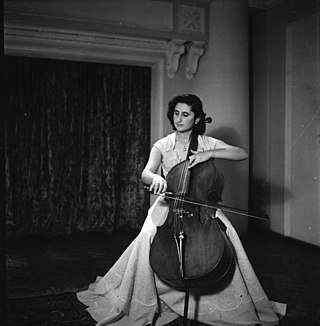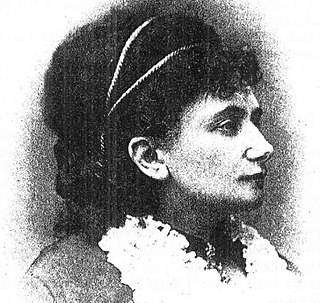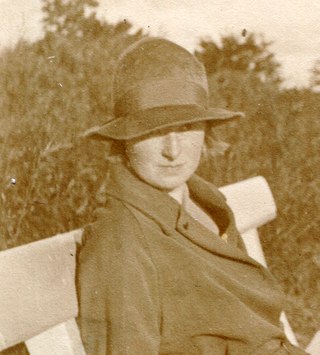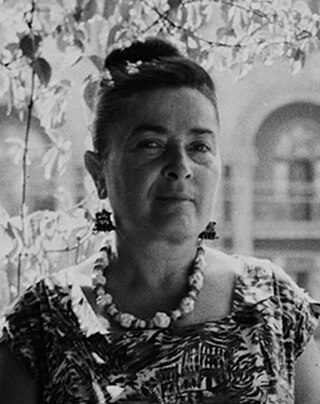Anu Kaal | |
|---|---|
 Anu Kaal in 2023 |
Anu Kaal (born Anu Kindlam, 4 November 1940 Tallinn) is an Estonian coloratura soprano singer. [1] In 2001, she was awarded the Order of the White Star.
Anu Kaal | |
|---|---|
 Anu Kaal in 2023 |
Anu Kaal (born Anu Kindlam, 4 November 1940 Tallinn) is an Estonian coloratura soprano singer. [1] In 2001, she was awarded the Order of the White Star.
She studied at the Tallinna Muusikakool, and Estonian Academy of Music and Theatre. She studied at La Scala, with Renata Carosio.
From 1967 to 1996, she was an opera soloist. [2] She sang with Georg Ots. [3] [4] Since 1984, she has taught at the Estonian Academy of Music and Theatre.
Kaal was the partner of ballet dancer and actor Väino Aren from 1986 until his death in 2023. [5]

Abdilda Tazhibayevich Tazhibayev was a Kazakh writer, screenwriter, and playwright. He was named a People's Writer of the Kazakh SSR in 1985.
The Heldt Prize is a literary award from the Association for Women in Slavic Studies named in honor of Barbara Heldt. The award has been given variously in the following categories:
Meta Vannas was an Estonian Soviet politician. She was a member of the Communist Party of Estonia.

Uku Suviste is an Estonian singer-songwriter, pianist and music producer. He was scheduled to represent Estonia in the Eurovision Song Contest 2020 in Rotterdam, Netherlands, before cancellation of the competition that year. Instead, he represented Estonia in the Eurovision Song Contest 2021.
Sabrina Grigorian was an Italian-born Armenian actress.
Mirtel Pohla is an Estonian stage, film and television actress.
Ellen Liiger, was an Estonian stage, television, radio and film actress and theatre teacher. Her stage career began at age six and lasted until she died in 1987.

Medea Abrahamyan was an Armenian cellist, People’s Artist of Armenian SSR (1980) and Professor of the Yerevan Komitas State Conservatory (1983).
Tuhfa Fozilova was a Tajikistani actress and singer of the Soviet era. During her operatic career, she performed as a lyric soprano.
Aziza Azimova was a Soviet and Tajikistani ballet dancer and actress.
Sona Yazova is a poet from Turkmenistan. In 2010 she was named a People's Writer of Turkmenistan by president Gurbanguly Berdimuhamedow as part of the celebrations marking the 19th anniversary of Turkmenistan's independence. She has also been employed by the national television network. In 2008 she was appointed a member of the committee which metes out the Makhtumkuli International Prize. She has been active in literary circles since the late Soviet era, when she was among those invited to present work in poetry readings during perestroika, and has written short fiction in addition to poetry. She was described as a supporter of the regime of Saparmurat Niyazov while he was alive, and at least one of her short stories centers upon an incident in the life of his mother, Gurbansoltan Eje, whose story was central to his personality cult. Patriotism and love of country are among the themes touched upon in her verse.
Bakhargul Kerimova is a writer from Turkmenistan. She has written both poetry and fiction during her career. A book of her short stories was published in Ashgabat in 1983, and a volume of her poetry was issued in 1988. She has remained active in public life in Turkmenistan since the breakup of the Soviet Union.

Fruzina Szalay was a Hungarian poet and translator.

Atala Kisfaludy was a Hungarian poet, writer from Hungary. She was the first woman to be a member of the Petőfi Society.

Karin Luts was an Estonian painter and a graphic artist.

Yeranuhi (Yeran) Arshaki Aslamazyan was an Armenian and Soviet artist and graphic artist. She was a member of the Artists' Union of the USSR and an Honored Artist of the Armenian SSR.
Anna Ratkó (1903–1981), was a Hungarian politician (Communist). She was the Cabinet Minister of Health in 1950–1953. She was the first female cabinet minister in Hungary.

Väino Aren was an Estonian ballet dancer, actor, and operetta singer.

Three Chestnut Horses is a 1940 novel by Margita Figuli in the Slovak language.
Mayramkan Abylkasymova was a Kyrgyz poet and editor, designated a "People's Poet of Kyrgyzstan."